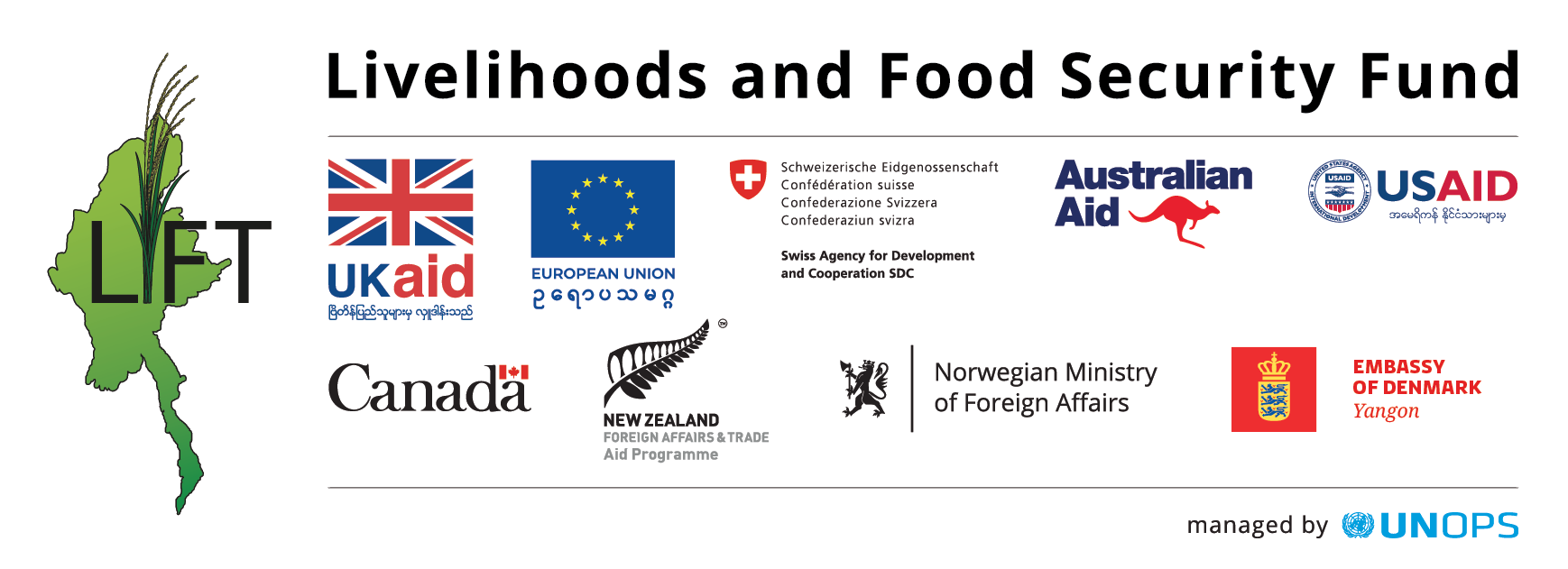
Additional 14 million Euros pledged to increase food availability and incomes of 1.5 million target beneficiaries
17 February 2012, Yangon – European Commission’s Director for Asia, Central Asia and Pacific, Dirk Meganck, spent two days with villagers in the central Dry Zone of Myanmar seeing first-hand how EU funding is helping them improve their livelihoods.
Between 41-63% of the poor living in the Dry Zone have inadequate food to eat. Land holdings are small and landless rates are high, creating an obstacle to household’s food production. Erratic rainfall in one of the most densely populated areas of Myanmar is increasing the risk of desertification. Myanmar is one of the poorest countries in South East Asia (ranked 132 out of 169 countries in the 2010 Human Development Index), and lags behind its neighbours in most socio-economic indicators.
Dirk Meganck’s visit to Myanmar was three-fold: accompany AndrisPiebalgs, EU Commissioner for Development on his official visit to the country, present a paper at the high-level Development Policy Options meeting opened by the Vice President of the Government of Myanmar, and to see first-hand how the future development in the country can be supported. “This country is changing very fast and the Government is opening up to the outside world” said Meganckat the Development Policy Options meeting. “We hope the evolution is sustainable and thatwe can work together to support the country,” he added.
EU is supporting more than 1 million poor through its funding to the Livelihoods and Food Security Trust Fund (LIFT) in the Dry Zone as well as in villages across Myanmar. The largest livelihood fund in the country, LIFT was established by the European Commission and other international donors to assist recovery efforts following the destruction caused by Cyclone Nargis in 2008. LIFT programs help to increase food availability, income generation opportunities and food use for up to 1 million people. The programs help combat extreme poverty and hunger in Myanmar. The European Union and its Member States (Denmark, Netherlands, Sweden and the United Kingdom) provide 81% of funding to LIFT. Mr.Meganck announced an additional 14 million Euro contribution to the fund in 2012 from the European Commission.
The EU delegation led by Mr.Meganck visited a LIFT funded project in KhetLanKyin village. One of 20 villages being assisted by Mercy Corp helping 75% of the targeted farmer households to increase their profits by 10% among other results within three years. The women in the village now have home gardens that help to provide food to their families’ year around.
The next day Mr.Meganckvisited Aie Ma Yoe village, one of the 15 villages where a three year LIFT funded project is training 500 farmers, providing livestock assets to 600 households, and assisting 150 home bound older persons and people with disabilities. The 40 villagers warmly greeted the delegation and the head of the local farmers group said that EU’s assistance through LIFT has enabled them improveharvesting and storing of crops and how to protect them from pest that have ravaged their crops in the past. “We are already better off,” said Ma Khin Kwe.
EU support has ensured that between 2010–11 more than 1 million people directly benefitted from LIFT assistance and the outcomes of these projects are staggering. In the agricultural sector alone, more than 22,000 farmers have benefited from training and advice on how to maximize the benefit of agricultural inputs. More than 17,500 poor and landless households have received livestock and almost 13,500 fishing households have received nets and boats.
“LIFT performance and lessons learned provide strategic policy advice for the government of Myanmar to lead to important improvements in food security and livelihoods in the coming years,” Meganck said.
EU will be contributing an additional Euro 150 million to support health, education and livelihoods in Myanmar. LIFT will receive a further Euro 14 million to enable farmers to cultivate larger areas and yield better harvests, resulting in increased income for many households and villages across the country.
In partnership with donors, UN agencies, and non-governmental organizations, LIFT has provided agricultural support to almost 50,000 farmers, provided approximately 400,000 person-days of work through cash-for-work activities and strengthen the capacity of more than 3,000 community groups with more than 70,000 people (41% of which are women) in management and vocational skills. Its microfinance projects, have disbursed loans to over 50,000 poor and vulnerable households in around 3,000 villages, lifting thousands out of poverty.


